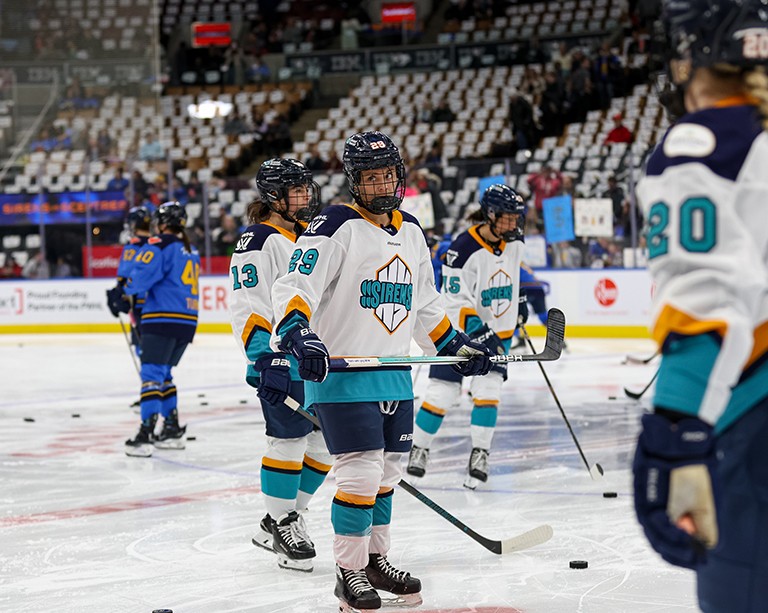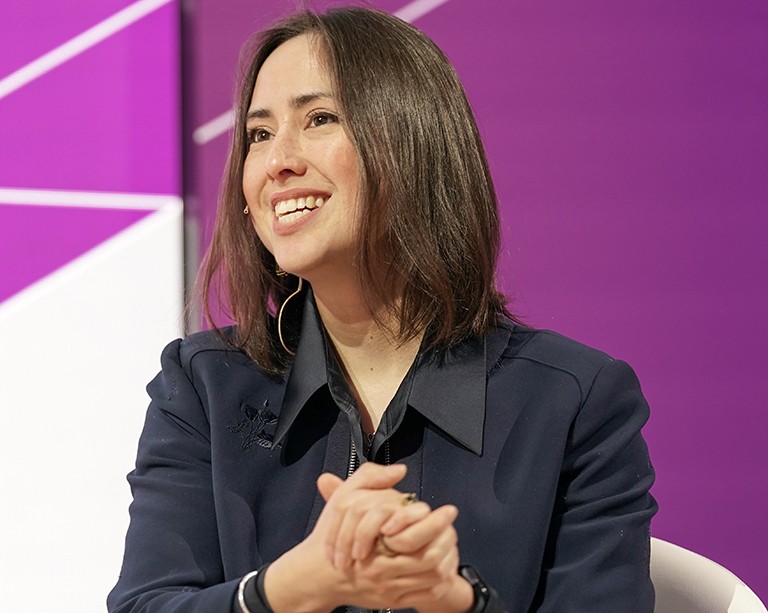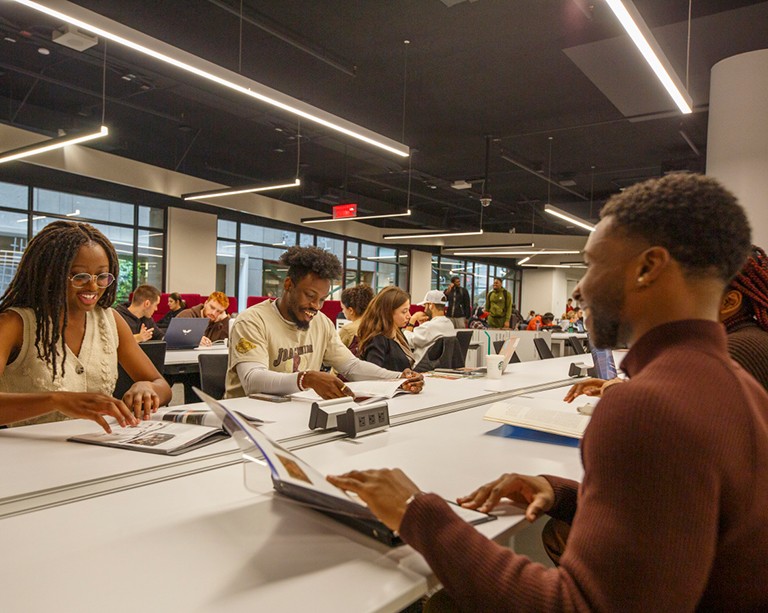Concordia professors bring their research to the 87th Congrès de l’Association francophone pour le savoir

From cybersecurity to community organizing, Concordia researchers are once again set to make an impact at the Congrès de l’Association francophone pour le savoir (Acfas).
A number of professors and student researchers will present their work at the 87th edition of the landmark conference, the biggest of its kind in the French-speaking world. The event takes place this year from May 27 to 31 at Université du Québec en Outaouais in collaboration with CEGEP de l’Outaouais.
Over the five days, academics and other experts will unpack current pressing topics such as artificial intelligence, climate change, Indigenous reconciliation, entrepreneurship and more.
For this year’s theme, Engager le dialogue savoirs – sociétés, Acfas is hosting thousands of speakers from at least 30 countries. The week will see more than 2,500 presentations across 200 colloquia, all in French. The following selection of Concordia participants demonstrates the breadth of inquiry taking place on campus.
Ecological restoration, parenting challenges and more
Vivek Venkatesh is associate professor of art education and director of the Centre for the Study of Learning and Performance. He will present on cyberdiscussions about Islamophobia in Quebec between 2014 and 2018.
His paper examines Canadians’ understanding of national issues related to citizenship, identity and cultural belonging. Venkatesh analyzes conversations taking place on the discussion-based website Reddit dealing with subjects such as the Charter of Values, proposed by the Parti Québécois government in 2013, and the January 29, 2017, deadly attack at the Islamic Cultural Centre of Quebec City.
Dale Stack is professor of psychology in the Faculty of Arts and Science. She will discuss her work on parenting in the context of adversity and share lessons learned from an intergenerational study of vulnerable families.
Stack’s research has important implications for the development of parenting skills and child adjustment, as well as for public policies aimed at enabling socioeconomically disadvantaged children and their families to break the intergenerational cycle of risk.
Anna Kruzynski is associate professor and graduate program director at the School of Community and Public Affairs. She is studying the concept of “the commons” in the context of popular struggles in Montreal’s Pointe-Saint-Charles neighbourhood.
Rather than defining the commons as a “thing” associated with public property or open access, Kruzynski instead uses three local case studies to conceptualize them as processes constituted by human actors.
Wahab Hamou-Lhadj is professor of electrical and computer engineering at the Gina Cody School of Engineering and Computer Science. He will present on deep learning for anomaly detection in a host environment and cybersecurity.
A recent family of attacks not detected by network-based approaches has elicited increasing attention in host-based anomaly detection systems. Hamou-Lhadj will discuss the results and proposed solutions of a research project that deals with several aspects of this problem, from data abstraction techniques to the combination of deep learning methods.
David Howes is professor of anthropology and co-director of the Centre for Sensory Studies. His Acfas presentation proposes a cultural approach to the study of the senses and a sensory approach to the study of culture. That is, the senses are treated both as an object of study and as a means of investigation.
His paper presents case studies on the enculturation of the senses and proposes a paradigm for the study of the sensory dimensions of material culture (for example art, artifacts and consumer goods).
Valérie De Courville Nicol is professor of sociology. She will speak about generalized anxiety through an analysis of 21 popular textbooks (1970 - 2010) that aim to help the reader deal with an anxiety problem.
She identifies six modes of socioemotional suffering — both individual and collective practices and experiences dynamically and strategically generated by authors as well as readers, experts and non-specialists. After reviewing all six, De Courville Nicol will focus on generalized anxiety as it relates to cognitive challenges of the complexification of knowledge in a risk society and a culture of fear.
Pascale Biron is professor and chair of the Department of Geography, Planning and Environment. She will offer a sustainable approach to the management and restoration of aquatic ecosystems. She argues that allowing river processes to operate freely not only reduces the public safety risks associated with flooding and bank erosion, but also brings many benefits to aquatic wildlife.
Biron will give a second presentation on the ecological and economic benefits of real integrated water management in Quebec. She will demonstrate how this approach considers water as a resource and needs administrative activities to be coordinated through a management plan and consistent land-use approach at the watershed scale.
Ann-Louise Davidson is associate professor of education and Concordia University Research Chair of Maker Culture. She will discuss her Canada-France-Mexico team’s work around the maker movement in education and educational robotics.
The team aims to train educational actors to improve opportunities in disadvantaged neighbourhoods and develop 21st-century life skills. They plan to do so through constructing maker spaces, training students, developing methodologies for the professional training of teachers and community actors, and organizing workshops.
Louis Patrick Leroux is professor of English and études françaises in the Faculty of Arts and Science. He will speak about a quantitative questionnaire he co-created that aims to identify the digital cultural mediation devices of dance, theatre and circus companies.
Along with his colleagues at Université du Québec à Trois-Rivières and Université du Québec à Montréal, Leroux will present the questionnaire's preliminary results that touch on themes of cultural mediation, digital or mixed mediation devices and the use of digital in everyday life.
Concordia hosted Acfas in 2014, welcoming 5,100 scholars and 173 colloquia. In total, more than 3,000 papers explored the theme of Research: Zones of Creativity and Convergence.
Read more about the Concordia presentations taking place at the 87th Congrès de l’Association francophone pour le savoir (Acfas).


